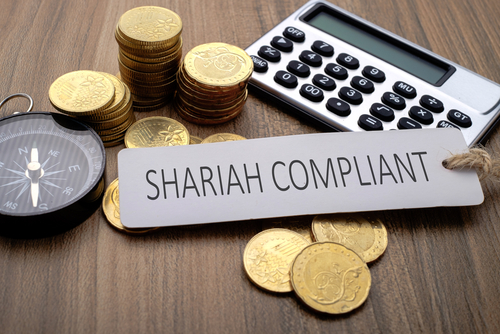The financial industry is failing to recognise and communicate that annuities do not align with Shariah principles, putting Muslim members at risk of making decisions that contradict their beliefs.
DOWNLOAD THE ADVISER ATTITUDES TO SHARIAH INVESTMENTS REPORT HERE
Annuities are not compatible with Islamic finance rules because they rely on interest-based mechanisms to provide a fixed income. And while some Shariah-compliant pension options, such as sukuk-backed investment funds, are starting to appear, annuities are still being overlooked.
The issue leaves Muslims facing limited choices in retirement. The UK’s Muslim population is ageing with 300,000 recorded over 60s in 2021, and another 300,000 expected to reach that age by 2030. Islamic finance scholars say some Muslims may be opting out of pensions because there aren’t enough Shariah-compliant options available. Instead, many choose to invest in real estate which lacks the tax advantages and employer contributions that pensions offer.
Corporate Adviser’s recent report – Adviser Attitudes to Shariah Investments – has found a significant blind spot with regard to the Shariah status of annuities.
Recent surveys carried out by Islam Channel and Islamic Finance Guru indicate large proportion of Muslims who do not have insurance and pension have cited Shariah compliance issues as the reason. Of the Muslims that enrol in their workplace pension – approximately 40 per cent cited that the pensions offered by their employers did not offer a Shariah compliant option. This clearly highlights that a large number of Muslims are either avoiding pensions altogether or feeling forced to compromise their beliefs. This situation not only affects individuals’ financial futures but also has broader social and economic implications.
One key challenge is the low engagement from Muslim savers. Some experts argue that without strong demand from members, providers have little incentive to develop Shariah-compliant annuities. Additionally, many providers do not proactively publicise existing Shariah options, further limiting awareness.
Finding information on the Shariah status of annuities is difficult. Asked to confirm whether annuities currently on offer are Shariah-compliant, an ABI spokesperson said: “Annuities are part of a wide range of retirement products available to customers, and there are several ways a customer can invest and withdraw their retirement savings in a way that best suits their needs. A number of providers offer shariah-compliant investment options for workplace pensions, and we welcome further exploration in relation to retirement products.
“When considering how to access pension savings, it’s important that customers understand the different choices available to them and can make informed decisions. We would encourage anyone approaching or considering their retirement to seek appropriate advice to make sure they’re getting the right product for them.”
Islamic Wealth Management financial adviser Brian Hill is clear in his assessment, stating that they are not permissible. He argues that providers could adapt annuities to comply with Shariah law but he believes the difficulty lies in the fact that there’s little appetite for such products, both from providers and the Muslim community itself, which he says needs to be educated in terms of the market.
Hill says: “They are just not permissible. Annuities become almost irrelevant to the Shariah community because of the underlying investments. They could easily be adapted if providers wanted to actually spend time and money on it. The difficulty that providers have is spending the time and effort to offer the alternative because it’s relatively new and there’s little appetite. That’s within the Muslim community as well, they need to be educated in terms of the market.”
Ajmal Bhatty, director, Badri Management Consulting, technical team member, Accounting and Auditing Organization for Islamic Financial Institutions (AAOIFI) says: “There is an absence of Shariah-compliant decumulation solutions in the UK. This means a lot of Muslims are not joining schemes because they are not aligned with their faith, while some do so reluctantly. Research has shown 40 per cent Muslim employees are looking for an Islamic pension but do not have access to one.
“Another concern I have is the gender disparity. Many Muslim women do not work – and if the husband does not have a pension, women can end up with nothing to rely upon in retirement.
“I have spoken to pension providers about the lack of decumulation solutions and they have done nothing about it. Wahed is targeting the accumulation side, but there is nothing there in decumulation.”
One could ask why did the situation concerning the non-Shariah status of pensions not come to light at the time pension freedoms were introduced in 2015, on the ground that a very small number of Plymouth Brethren were prohibited by their faith from annuities because they are not allowed to profit from the death of others?
“Awareness in the Muslim community has been a contributory factor. Islam is a diverse community, covering lots of diverse groups, and awareness of Shariah issues has only started to emerge in recent years,” says Bhatty.
“Credit to HM Treasury and The Pensions Regulator who have reached out to community organisations like the Hybrid Group to help address these issues.”
Hymans Robertson head of DC provider relations Shabna Islam suggests the UK could adapt flexible drawdown with fixed income and the CDC framework, to create a Shariah-compliant annuity alternative.
Islam says: “Annuities are an insurance policy that does not comply with interests and risks. But something that looks and feels like an annuity, I believe exists overseas. There is flexible drawdown, with fixed income that is compliant. There’s a CDC framework now that we can use to design something in decumulation that gives us a lot more flexibility around the underlying investment. DB income is compliant.”
However, industry experts remain sceptical about the level of awareness and discussion around this issue. Isio director Sukhdeep Randhawa points out that whether talking about riba (interest, which is strictly prohibited), gharar (unreasonable uncertainty or speculation on future instruments), or halal (permissible instruments), awareness of the principles is low.
Randhawa says: “Thinking about what’s happening in the annuities space, it’s a very small part of the wider Shariah-compliant universe. It’s part of the broader investment universe, and the understanding of whether it’s Shariah-compliant depends on the awareness of those creating these structures and products and how they are communicated.”
Quantum Advisory senior investment consultant Jayna Bhullar says: “Clearly the products aren’t designed specifically for the market, so there is that chance that there might be some misalignment.
“If there’s not a product that’s specifically designed with that purpose in mind, then there’s always the challenge that it’s not suitable.”
Syndaxi Financial Planning financial planning director Robert Reid questions why the issue has been overlooked, stating: “Given the lengths that were gone to accommodate the Plymouth Brethren with pensions freedoms, one wonders why this hasn’t received more attention before now.”
Islam believes that exploring the CDC framework could help design a more flexible, Shariah-compliant alternative to annuities in the UK. Meanwhile, Hill emphasises that the challenge is not just on the providers’ side but also within the Muslim community itself, which, he argues, needs more education on financial products to create demand for compliant solutions.
Bhatty suggests creating Takaful-based or equity-participation annuities that pool investments in Shariah-compliant assets like Sukuk or real estate, providing retirees with a steady income. He also recommends introducing Shariah-compliant real estate-backed funds in pension schemes to generate rental income for retirees, offering a culturally aligned solution for de-accumulation.
Bhatty further highlights that the UK is well-positioned to become a global hub for Islamic pensions, leveraging its strong financial infrastructure, regulatory expertise, and diverse Muslim population.





